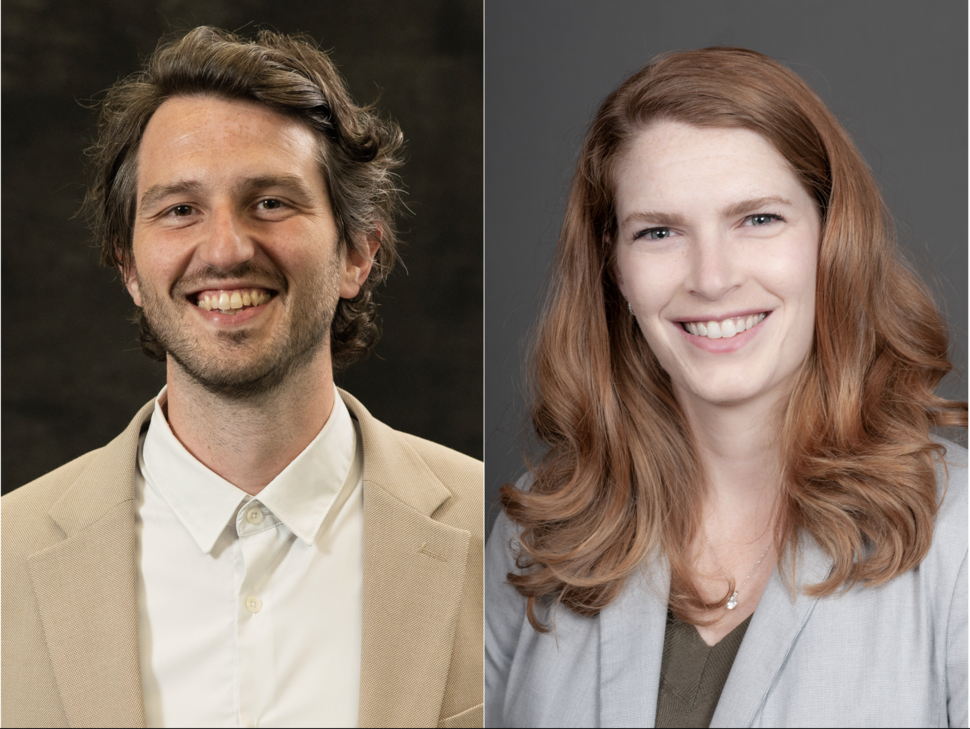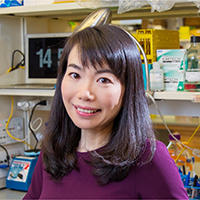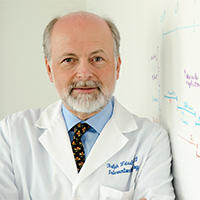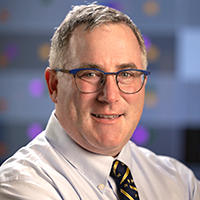Upcoming Seminars
Early Career Session: Mechanobiology Tools
Tuesday, August 12th 2025, 2-3pm ET
Speaker 1: Abigail Fabiano, Vanderbilt University & Rice University
Title: Multiplex, high-throughput method to study cancer and immune cell mechanotransduction
Speaker 2: Madison Kane, University of California San Diego
Title: Adhesion Strength of Tumor Cells Predicts Metastatic Disease in vivo
During this seminar, two early career researchers will share about new mechanobiology tools they're developing to advance cancer research. Abigail Fabiano will share her work developing high-throughput, semi-automated methods using a commercially available pipetting device. These methodologies are designed to expose cells to physiological fluid sheer stress while processing a vast number of samples simultaneously, supporting the ability to study mechanoresponses of cells during cancer metastasis. Madison Kane will describe a novel label-free method using a parallel-plate flow chamber for assessing cell adhesion strength to evaluate this measure as a marker for metastatic potential.
Early Career Session: Microscopy Platforms
Tuesday, September 16th 2025, 2-3pm ET
Speaker 1: Stephan Daetwyler, Ph.D., UT Southwestern Medical Center
Title: Imaging cancer across scales with self-driving, multi-scale microscopy
Speaker 2: Lucy Britto, Georgia Tech & Emory University
Title: Expansion Microscopy of Lymphoma Organoids Reveal T Cell-Driven Epigenetic Modulation of Malignant B Cells
During this seminar, two early career researchers will share about the new tools they're developing to advance cancer research. Dr. Stephan Daetwyler will share about his work developing a multi-scale microscopy method to simultaneously observe and quantify subcellular dynamics in the context of entire organisms in vitro and in vivo over hours of imaging, and applying the platform to study developmental processes, cancer invasion, and metastasis. Lucy Britto will describe the use of Expansion Microscopy (ExM) to study synthetic hydrogel-based lymphoma organoids to examine how aspects of the tumor microenvironment influence the clustering of histone methylation within diffuse large B cell lymphoma cells.
Past Seminars
Programs and Resources to Support Technology Development for Cancer Research
Tuesday, June 17th 2025, 2-3pm ET
Speaker: Kelly Crotty, Ph.D., National Cancer Institute
NCI drives early-stage innovative technology development and translation of emerging tools into laboratory and clinical use through numerous programs focused on a specific field or phase of technology development. During this seminar, Dr. Kelly Crotty shared about the many programs and resources NCI has to support the development of highly innovative technologies to better understand, prevent, diagnose, and treat cancer to ultimately help people live longer and healthier lives.
Video: Pre-Targeting with in vivo Click Chemistry for Next-Gen ADCs and Targeted Radiotherapeutics (TRTs)
Tuesday, May 13th 2025, 2-3pm ET
Speaker: José Mejía Oneto, M.D., Ph.D., and Travis Biechele, Ph.D., Shasqi, Inc.
Moderator: Jacek Capala, Ph.D., National Cancer Institute
During this seminar, Dr. Mejía Oneto and Dr. Biechele, veteran of the antibody drug conjugate (ADC) industry, described the development of Shasqi's Click Activated Prodrugs Against Cancer (CAPAC) platform. CAPAC is a novel pre-targeting approach that overcomes the catabolic activation issue facing other targeted treatments, such as ADCs and radiotherapies. This reduces off-target toxicities, enabling more drug to be given and increasing patient benefit. They also reviewed data from their pipeline of novel oncology assets. Play the video [60 min].
Video: Dynamics of 3D Genome Structure and Function
Tuesday, April 22nd 2025, 2-3pm ET
Speaker: Anders Sejr Hansen, Ph.D., Massachusetts Institute of Technology
Moderator: Ian Fingerman, Ph.D., National Cancer Institute
During this seminar, Dr. Hansen will describe novel high-resolution tools developed in his lab to study 3D genome structure in time and space. In particular, he'll share recent work focused on tracking the looping between DNA elements such as enhancers and promoters, how DNA looping affect transcription, and how dysregulation of these processes can cause oncogene overexpression in cancer. Play the video [57 min].
Video: Mapping Tumor Heterogeneity Across Space and Time
Tuesday, March 25th 2025, 2-3pm ET
Speaker: Ben Raphael, Ph.D., Princeton University
Moderator: Joshua Snyder, Ph.D., Duke University
During this seminar, Dr. Raphael introduced computational methods developed in his lab to analyze tumor heterogeneity using genomics and spatial transcriptomics technologies. He described machine learning methods to investigate the tumor microenvironment and phylogenetic algorithms to study tumor evolution in 2D and 3D space. He demonstrated applications of these open-source software tools to analyze data from multiple cancer types and molecular profiling technologies. Play the video [60 min].
Video: Modeling the blood-brain niche to study cancer metastasis
Tuesday, November 12th 2024, 2-3pm ET
Speaker: Sofia Merajver, M.D., Ph.D., University of Michigan
Moderator: Brian Sorg, Ph.D., National Cancer Institute
During this seminar, Dr. Merajver discussed the development of a microfluidic device that mimics the cellular and physical components of the human blood-brain niche to study the brain metastatic process. Dr. Merajver's lab has applied this microfluidic blood-brain niche model to compare subclones of breast cancer cell lines in terms of their ability to extravasate, mitigate, and survive in this niche. Play the video [57 min].
Video: Tools to Evaluate, Track, and Ensure the Integrity of Biospecimens
Tuesday, October 15th 2024, 2-3pm ET
Speaker: Chad Borges, Ph.D., Arizona State University
Moderator: Carolyn Compton, M.D., Ph.D., Arizona State University
During this seminar, Dr. Borges discussed the development of novel tools for querying biospecimen integrity, or their fitness for analysis. Specifically, Dr. Borges has developed chemical approaches for tracking the exposure of biospecimens to thawed conditions - under which biochemical reactions occur that cause the specimens to no longer reflect in vivo reality at the molecular level. Play the video [65 min].
Video: Endosome-mitochondria interactions in breast cancer and metastasis
Tuesday, September 17th 2024, 2-3pm ET
Speaker: Margarida Barroso, Ph.D., Albany Medical College
Moderator: Steve Becker, Ph.D., National Cancer Institute
At this seminar, Dr. Barroso described new imaging quantification methods for assessing the morphology and subtyping of tumor cells. She described a novel pipeline that uses the spatial context of organelles and their topology for cancer cell classification to identify subpopulations of metastatic cells. Play the video [60 min].
Video: Detecting and characterizing the structure of extrachromosomal DNA
Tuesday, August 20th 2024, 2-3pm ET
Speaker: Vineet Bafna, Ph.D., University of California, San Diego
Moderator: Tom Paulson, Ph.D., Fred Hutchinson Cancer Center
During this seminar, Dr. Bafna described new algorithms and forthcoming tools to serve the exciting field of extrachromosomal DNA (ecDNA). This included the Community Accessible Pipeline for ecDNA Reconstruction (or CAPER) platform to elucidate the structure, function, and evolution of ecDNA. Play the video [61 min].
Video: Early Career Session: Informatics Tools for Cancer Research
Tuesday, July 16th 2024, 2-3pm ET
Speaker 1: Ino de Bruijn, Memorial Sloan Kettering Cancer Center
Title: Exploring Multimodal Cancer Data via cBioPortal and the HTAN Portal
Speaker 2: Erin Wissler Gerdes, University of Iowa
Title: Evaluating Usability and Feasibility of Implementing Cancer Epidemiology Maps for SEER Registry End Users
Moderator: Nastaran Zahir, Ph.D., National Cancer Institute
During this seminar, two early career researchers shared about new tools they're developing to advance cancer research. Ino de Bruijn shared about the HTAN Data Portal that contains multi-dimensional data from the Human Tumor Atlas Network and the open source cBioPortal tool for visualization, analysis, and download of cancer genomics data being developed in Dr. Nikolaus Schultz's lab. Erin Wissler Gerdes then presented on the implementation, evaluation, and usability of an interactive risk mapping tool to estimate cancer rates and risk in small geographic regions being developed in Dr. Jacob Oleson's lab. Play the video [56 min].
Video: Representing and Embedding Tissue Structures
Tuesday, June 25th 2024, 2-3pm ET
Speaker: Dana Pe’er, Ph.D., Memorial Sloan Kettering Cancer Center
Moderator: David Miller, Ph.D., National Cancer Institute
During this seminar, Dr. Pe’er described covariance environment (COVET), a representation to define cellular niches for spatial inference and explore the complex tumor microenvironment, developed as part of the Cancer Moonshot Human Tumor Atlas Network. Play the video [59 min].
Video: DNA origami vaccine (DoriVac) for cancer and infectious diseases
Tuesday, May 21st, 2024, 2-3pm ET
Speaker: Yang Claire Zeng, M.D., Ph.D., Wyss Institute and Dana Farber Cancer Institute
Moderator: Karen Anderson, M.D., Ph.D., Arizona State University
During this seminar, Dr. Zeng described a DNA origami vaccine platform called DoriVac. The approach allows delivery of both the antigen and the adjuvant on the same particle, allowing them to work together to create a very strong and selective immune response, as well as promoting long-term memory to prevent cancer from returning. Dr. Zeng described validation of the approach for melanoma and colon carcinoma, and discuss other cancers being explored. Play the video [59 min].
Video: Finding neighborhoods in the land of spatial omics
Tuesday, April 23rd, 2024, 2-3pm ET
Speaker: Kai Tan, Ph.D., Director, Center for Single Cell Biology at Children’s Hospital of Philadelphia & Professor, Perelman School of Medicine University of Pennsylvania
Moderator: Fei Chen, Ph.D., Harvard University & Broad Institute
During this seminar, Dr. Tan described his recently developed CytoCommunity algorithm for the growing field of single-cell “spatial -omics” which is designed to identify tissue cellular neighborhoods that can be applied in either an unsupervised or supervised fashion. CytoCommunity represents a powerful and scalable method for de novo identification of condition-specific cellular clusters in tissue to facilitate interpretation of their function and discovery of cell-cell communications within a tissue microenvironment. Play the video [57 min].
Video: Viscoelasticity and Cancer
Tuesday, March 19th, 2024, 2-3pm ET
Speaker: David Mooney, Ph.D., School of Engineering and Applied Sciences, Wyss Institute, Harvard University
Moderator: Claudia Fischbach, Ph.D., Cornell University
During this seminar, Dr. Mooney described new biomaterial technologies developed in his lab to manipulate cell function, understand how cells sense their physical environment, and recruit and re-educate the immune system to destroy cancer cells. Play the video [61 min].
Video: Proximity Barcoding Chemoproteomic Platforms to Map and Manipulate Oncogenic Signaling
Tuesday, February 20th, 2024, 2-3pm ET
Speaker: Raymond Moellering, Ph.D. , University of Chicago
Moderator: Jordan Meier, Ph.D., NCI's Center for Cancer Research
At this seminar, Dr. Moellering presented novel chemical probes and proteomic technologies developed in his lab to expose and exploit signaling mechanisms in cancer and other diseases. Play the video [63 min].
Video: Uncovering new predictive markers in cancer research with novel tools that define the molecular pathology of the extracellular microenvironment
Tuesday, January 16th, 2024, 2-3pm ET
Speaker: Peggi Angel, Ph.D., Medical University of South Carolina
Moderator: Kristin Burnum-Johnson, Ph.D., Pacific Northwest National Laboratory
In this seminar, Dr. Angel described how her lab has developed novel tools and workflows to target the extracellular microenvironment from clinically archived tissues. She discussed tool development and work to understand how the extracellular proteome, including post translational modifications, contributes to cancer progression. Play the video [59 min].
Video: Molecular and computational tools to understand tyrosine phosphorylation in cancer
Tuesday, October 24th, 2023, 2-3pm ET
Speaker: Kristen Naegle, Ph.D., University of Virginia
Moderator: Michael Yaffe, Ph.D., Massachusetts Institute of Technology
The Naegle lab uses data-driven approaches to predict and experimental approaches to test the regulation and function of tyorsine phosphorylation in complex networks. In this talk, Dr. Naegle described novel chemical methods and computational tools developed in her lab to support this work with a focus on their use in cancer research. Play the video [63 min].
Video: Bond-selective imaging to unveil hidden signatures in cancers
Tuesday, September 26th, 2023, 2-3pm ET
Speaker: Ji-Xin Cheng, Ph.D., Boston University Photonics Center
Moderator: Bing Xu, Ph.D., Brandeis University
During this seminar, Dr. Cheng discussed novel imaging technologies developed in his lab - including wide-field mid-infrared photothermal (MIP) imaging and high-content hyperspectral stimulated Raman scattering (h2SRS) imaging modalities - to map proteins, carbohydrates, fatty acids, cholesterol, and nucleic acids in single cancer cells and enable discovery-driven research towards precision diagnosis and treatment of human diseases. Play the video [59 min].
Video: Using genetically diverse mouse models for basic cancer research
Tuesday, August 15th, 2023, 2-3pm ET
Speaker: Muneer Hasham, Ph.D., The Jackson Laboratory
Moderator: Carol Bult, Ph.D., The Jackson Laboratory
In this seminar, Dr. Hasham described a strategy developed in his lab to produce genetically diverse mouse models to study human xenografts, including difficult-to-xenograft tumors, that could allow us to understand the contribution of genetic diversity in the tumor microenvironment to the development of cancers. Play the video [59 min].
Video: Mapping cellular plasticity in tumor progression and drug resistance
Tuesday, July 18th, 2023, 2 – 3pm ET
Speaker: Itai Yanai, Ph.D., New York University School of Medicine
Moderator: Josh Campbell, Ph.D., Boston University
Dr. Yanai talked about new informatics tools for inferring cell state tumor microenvironment maps by integrating data from single-cell and spatial transcriptomics studies. Play the video [75 min].
Video: Multiplexed EV analysis for early cancer detection
Tuesday, June 20th, 2023, 2 – 3pm ET
Speaker: Ralph Weissleder, M.D, Ph.D., Massachusetts General Hospital and Harvard Medical School
Moderator: Minetta Liu, M.D.
Dr. Weissleder talked about a novel method for single extracellular vesicle analysis which allows multiplexing (MASEV). This has generated new insight into EV biology and clinical applications. Play the video [58 min].
Video: Artificial Intelligence and Computational Imaging: Opportunities for Precision Medicine
Tuesday, May 23rd, 2023, 2 – 3pm ET
Speaker: Pallavi Tiwari, Ph.D., University of Wisconsin, Madison
Moderator: Rajan Jain, M.D., NYU Langone Health
At this seminar, Dr. Tiwari focused on her lab’s recent efforts in developing machine learning techniques to capture insights into the underlying tumor biology as observed across non-invasive imaging, histopathology, and omics data. She focused on applications of this work for predicting disease outcome, recurrence, progression and response to therapy specifically in the context of brain tumors. She also discussed current efforts in developing new image-based features for post-treatment evaluation and predicting response to chemo-radiation treatment. Dr. Tiwari concluded her talk with a discussion of some of the translational aspects of her work from a clinical perspective. Play the video [60 min].
Video: Finding rare cells for therapeutic applications
Tuesday, April 18th, 2023 2 - 3pm ET
Speaker: Shana Kelley, Ph.D., Northwestern University
Moderator: David Barbie, M.D., Dana-Farber Cancer Institute
At this seminar, Dr. Kelley presented a rare cell profiling technology that allows ultra high throughput processing and separation of cell mixtures based on protein expression. Rare tumor-reactive immune cells can be isolated from blood and dissociated tumors to enable the development of cell therapies with enhanced potencies. Play the video [59 min].
Video: Advancing Genomic Technologies for Insights into Extrachromosomal Circular DNA (ecDNA) Structures and Function
Tuesday, March 28th, 2023 2 - 3pm ET
Speaker: Chia-Lin Wei, Jackson Laboratory
Moderator: Mariam Jamal-Hanjani, M.D., Ph.D., (Cancer Metastasis Lab) University College London
ecDNA, prevalent in primary cancers, is associated with aggressive tumor phenotype and poor patient outcome. Recent innovation in genomic technologies have been contributed in the understanding of its diversity and roles in promoting oncogenesis. We discussed these developments and how these approaches can be used to study cancer genome structural variation, oncogenic regulation, and intratumoral heterogeneity. Play the video [57 min].
Video: EMERSE: an easy-to-use, self-service search engine and chart review tool for EHR notes
Tuesday, February 21st, 2023 2 - 3pm ET
Speaker: David Hanauer, M.D., University of Michigan
Moderator: Dana Rollison, Ph.D., Moffitt Cancer Center
At this seminar, Dr. Hanauer described EMERSE - the Electronic Medical Record Search Engine. EMERSE is a tool designed to help non-technical researchers access and make sense of free text (unstructured) notes from electronic health records (EHRs). It is fast and powerful and can help with a wide range of clinical research tasks including cohort identification, eligibility determination, data abstraction, and more. Play the video [53 min].
Video: High-throughput and High-dimensional Single T cell Profiling
Wednesday, January 25th, 2023 2 - 3pm ET
Speaker: Ning (Jenny) Jiang, Ph.D., University of Pennsylvania
Moderator: Michelle Krogsgaard, Ph.D., NYU School of Medicine
At this seminar, Dr. Jiang discussed a newly developed technology on linking T cell antigen specificity to TCR sequences, gene expression, and phenotyping at a single cell level and in a high-throughput manner. Play the video [57 min].
Video: Development of a Visualization Approach to Enhance Cancer Moonshot Data
Thursday, November 17th, 2022 12 - 1pm ET
Speaker: Zeynep Gümüş, Ph.D., Icahn School of Medicine at Mt. Sinai
Moderator: Rachel Karchin, Ph.D., Johns Hopkins University
This was a joint seminar with the Cancer Moonshot Seminar Series and the DataViz + Cancer program. At this seminar, Dr. Gümüş talked about a user-friendly tool her group is developing to enable researchers of all computational skill levels to visually analyze and explore immune monitoring assay results. Play the video [60 min].
Video: Simple and low-cost optical imaging tools for label-free molecular imaging and 3D microscopy and their application in biomedicine.
Tuesday, October 18th, 2022 2 – 3pm ET
Speaker: Francisco (Paco) Robles, Ph.D., Georgia Institute of Technology and Emory University
Moderator: Milind Rajadhyasksha, Ph.D., Memorial Sloan Kettering Cancer Center
At this seminar, Dr. Robles discusses the work his team is leading to advance novel molecular and 3D optical imaging methods to overcome current clinical limitations in biomedicine ranging from hematology to cancer detection. Play the video [61 min].
Video: Lab on a particle technology for sorting viable single immune cells based on their function.
Tuesday, September 20th, 2022 2 – 3pm ET
Speaker: Dino Di Carlo, Ph.D., University of California – Los Angeles
Moderator: Jamie Spangler, Ph.D., Johns Hopkins University
At this seminar, Dr. Di Carlo discusses the “lab on a particle” technology being developed in his lab to enable scalable selection of functional immune cells, driving next-generation cancer immunotherapeutic design. Play the video [59 min].
Video: Placing mass spectrometry in the hands of medical professionals to help guide treatment decisions
Tuesday, August 23rd, 2022 2 – 3pm ET
Speaker: Livia Schiavinato Eberlin, Ph.D., Baylor College of Medicine
Moderator: Anil Sood, M.D., MD Anderson Cancer Center
At this seminar, Dr. Eberlin discusses a new technology called MasSpec Pen that can assess molecular predictors of disease state from tissue samples. She talks about how this tool can be used clinically for precision medicine-guided surgical resection. Play the video [60 min].
Video: Rethinking cancer targeting strategies: new synthetic sensors and circuits in the era of smart cell therapeutics
Tuesday, July 26th, 2022 2 – 3pm EST
Speaker: Wendell Lim, Ph.D., University of California – San Francisco
Moderator: Antoni Ribas, M.D., Ph.D., University of California – Los Angeles
At this seminar, Dr. Lim discusses new methods in cancer -omics and synthetic biology that can lead to nuanced paradigms of tumor recognition. These immuno oncology strategies could more effectively address the complex challenges of treating cancer. Play the video [57 min].






























